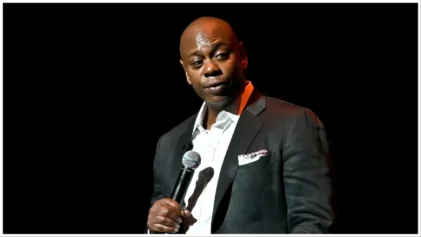Israeli officials are bracing for a possible new round of Palestinian rocket attacks from their southern border following their attack on a car in the Gaza Strip on Wednesday.
“The days we face in the south will, in my estimation, prove protracted,” Brigadier-General Yoav Mordechai told Channel 2 TV after Israeli air strikes killed the military chief of Gaza’s Hamas government. “The home front must brace itself resiliently.”
The attack by Israeli aircraft also critically wounded two passengers, the Palestinian enclave’s Hamas government said.
The rising tensions between the longtime adversaries along the Jewish state’s Southern border have prompted some Israeli lawmakers, including former military chief of Staff Shaul Mofaz, to press the government to authorize the assassination of Hamas leaders in the Gaza Strip.
There’s already growing speculation that Israeli Prime Minister Binyamin Netanyahu is leaning toward unleashing a new invasion of the Palestinian coastal enclave, much like massive 22-day invasion Israel launched in December 2008.
A major problem is that either military option to come in response to an escalating series of rocket and mortar barrages from Gaza in recent weeks, could have serious political ramifications.
The most dangerous would be to incense Egypt’s new Islamist government and place Israel’s landmark 1979 peace treaty with its southern neighbor in deep jeopardy. The treaty, the first between Israel and its Arab foes, has been the centerpiece of Jewish state’s security policies for more than three decades.
The rocket barrage that began Saturday eased by Tuesday, but Israeli Defense Minister Ehud Barak declared when he inspected the border zone, “It’s still not over.”
After meeting military commanders, including the battle-seasoned head of Southern Command, Maj. Gen. Tal Russo, Barak said that Palestinian militants “are absorbing heavy blows in Gaza” as a result.
“This clearly isn’t over and we’ll decide how and when to act the minute there will be a need to do so.”
He declined to elaborate, but Israeli anger and anxiety is mounting. Not just about the growing rocket threat from Gaza, but from the much wider and infinitely more perilous threat from Iran, its ally, Syria and their powerful proxy in Lebanon, Hezbollah.
Israel’s military and intelligence services have long engaged in assassinating the leaders of countries and organizations attacking the Jewish state, but this carries great risks and dead leaders have always been replaced.
The Jerusalem Post observed that various political figures from several parties are “explicitly or implicitly calling for returning to targeting Hamas leaders as a way of returning deterrence and quiet to the south.”
Most Israelis have no qualms about killing the leaders of militant Palestinian groups. Indeed few of Hamas’ original leaders are still alive. But the Post questioned whether killing Hamas’ political leaders now is legal.
Israel halted assassinating Hamas political chiefs amid the global outcry after Operation Cast Lead.
But the Post said that “real confusion arises regarding Hamas leaders who are sitting in an office somewhere nowhere near the battlefield, who do not participate at all in an attack, but may have ordered the attack or could only be vaguely connected because they are leaders of Hamas and known Hamas’ policies against Israeli civilians.”
Israel used to be widely criticized for its “targeted killings” of top Palestinian militants. But the Post concluded that al-Qaida’s suicide attacks on the United States on Sept. 11, 2001, “created a new paradigm.”
On Monday, Israelis got a reminder of the many assassinations carried out over the years by the Mossad intelligence service and the army’s elite Sayaret Matkal unit.
Barak commanded the unit in the 1970s, with Netanyahu serving under him. They both took part in rescuing hostages aboard a hijacked Belgian Sabena airliner at Tel Aviv airport May 8, 1972. All four hijackers from Palestinian Black September were killed.
The reminder was a television documentary that showed how in the 1970s the Mossad, busily engaged in trying to undermine Iraq’s anti-Israel Baathist regime, tried to assassinate Saddam Hussein with a book bomb.
Saddam didn’t open the package, but a high-ranking official did and was killed.


